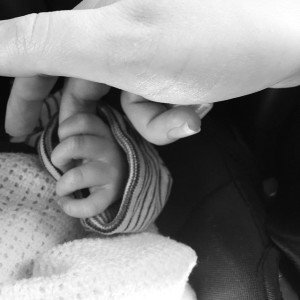 There are many hard things about parenthood. Some are obvious: sleepless nights, exhaustion, lack of me time, endless nappies. But there is one that is not talked about as much and that should be, and that is the crippling loneliness of motherhood (or fatherhood if the man is the stay-at-home parent). Now some people may wonder how you can be lonely when you are looking after a baby but here is the thing: they cannot talk. Even when they do start to talk you still crave adult company. You yearn for a decent conversation. A moment to relate to another human being can feel like a life-saving moment.
There are many hard things about parenthood. Some are obvious: sleepless nights, exhaustion, lack of me time, endless nappies. But there is one that is not talked about as much and that should be, and that is the crippling loneliness of motherhood (or fatherhood if the man is the stay-at-home parent). Now some people may wonder how you can be lonely when you are looking after a baby but here is the thing: they cannot talk. Even when they do start to talk you still crave adult company. You yearn for a decent conversation. A moment to relate to another human being can feel like a life-saving moment.
Since I had my son almost two years ago I have had moments of loneliness that were so extreme I felt like they might suffocate me. I have worked from home for years but I also went to a lot of events and reviewed restaurants. I talked to people, I interviewed people. I was important. Now I am just someone’s mother and the only person I have proper conversations with for weeks on end is my husband. I have always been a social person and there were times when I thought the isolation might break me. My family live in Scotland which I have found hard since having a child. My friends mostly work normal working hours.
It is not that I have not tried to make friends with other parents. We moved when my son was a baby and by the time I found groups to take him to people had already formed cliques. I tried to join in and be friends but the mean girl vibe does not wane when (some) women grow up and become mothers. Other times I would connect with someone and think we were going to become friends, only to never see them again. It wasn’t that I did not try. I really put myself out there and the constant rejection only made it worse.
I believe we have to talk more about how lonely being a parent can be. There are thousands of parents struggling to just get through the day. They are isolated and can go for weeks without any other human contact. There are now apps for mothers to meet up like Mush which is a tinder style app for mothers to meet up with each other. It is growing in popularity and I hope every mother who needs someone to talk to joins up.
Now that my son is nearly two I feel I have come out the other side. I take him to numerous events. He has a better social life than I do. Recently I have found that I have become friends with the other mothers from one of the groups I take him to. The mean girls have fallen away, leaving only a hard core group who go at least once a week. Last week we all talked for hours as our children played. I could tell that it made these mothers happy to have someone to talk to. Some were shocked when I started talking to them properly but we quickly got into the swing of it. We even shared tips for making more mum friends. It was a wonderful moment and a long time coming. I hope it is only the start.
This article was originally published on Feb 21, 2017. We republished it because it was popular.

